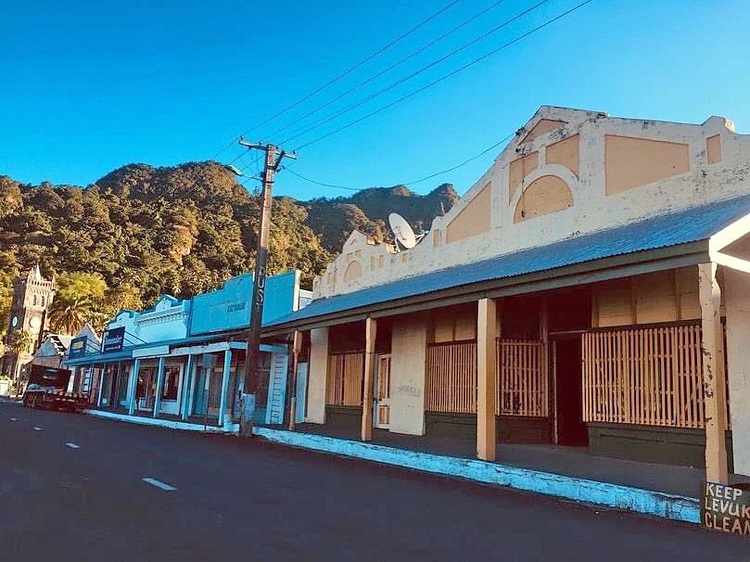A meeting of 22 residents of Levuka Town was held in January, 1959. Levuka was in a dreadful, difficult period of change which imposed difficult human problems.
This was stated by the then financial secretary, E R Bevington. He said Levuka – where the Deed of Cession was signed in 1874 – could not be economically self-sufficient in 1959 even if the government was able to grant money for schemes proposed by local businessmen.
According to the Fiji Times article on January 12, 1959, the assistant colonial secretary, J A C Hill, some department heads and several unofficial members of the Legislative Council, who returned to Suva from a trip to Savusavu had attended the meeting. Levuka residents who spoke at the one-hour meeting said it was essential for another industry to be established at Levuka if the town was to survive.
They said the removal of copra trading from the port had placed an economic hardship on the town and had caused considerable unemployment.
Levuka Town board chairman, E Ashley, said removal of the copra trade from Levuka had caused “starvation conditions” among many people on Ovalau.
“The question of a subsidy for the copra trade was brought up in the Legislative Council and the government would not do anything,” he said. “Levuka was supposed to help itself.
“But how can Levuka help itself immediately when for so many years it has been dependent on the copra trade which has been the life blood of the island.
“I believe the Fijians in Lomaiviti have asked the government to do something about bringing copra back to Levuka as they find hardship in taking it to Suva.
“If the government could subside Lomaiviti copra as we believe was asked, it would bring down the price differential so that all Lomaiviti copra could come to Levuka still at an economic selling price.
“This arrangement would probably be for only three or four years and would cost about 4000 pounds a year.
“I am pretty sure that 4000 pounds would be covered by the income tax which is not now being paid by Levuka people, all of whom would pay in normal years 3000 pounds to 4000 pounds income tax.
“This figure would not include those European copra planters resident in Levuka.”
Mr Ashley said if government could not provide a subsidy to enable copra trading to be resumed at Levuka, it could build a slipway.
The government promised the town a slipway in 1956 and soundings were made and plans drawn up the next year.
“We are now told that because there will not be much shipping in Levuka, it is useless to put up a slip,” he said.
“But we would like to remind the government that in former years we had more auxiliary boats that would use a slip than Suva did, yet all our boats had to go to Suva to be slipped.
“Why can’t they do the reverse now,” Mr J Maneklal, a Levuka resident since 1924, said Levuka in previous years had a very busy wharf but was hardly used at the time.
“I would sincerely like something done to save Levuka,” he said.
“Already three stores have shifted from the town and others are threatening to go.”
Mr J Roko, representing Solomon Islanders and New Hebrideans on Ovalau said there were 18 families in the New Hebrideans settlement who had been thrown out of work.
Fifty-seven of their children were at school at the time and for two months they had not been able to attend school.
He said he believed that for the remainder of that year, it would be impossible for them to continue their education because their parents did not have sufficient funds to pay for schools, fees and books.
“I have been feeding three families who formerly lived on earnings made from the copra trade, for the last six months,” he said.
“They cannot go elsewhere because they are not known.
“Unless work is available this year the only alternative will be for us to go to the commissioner to ask for a destitute allowance
or ask for a boat to ship us back to the New Hebrides”.
Mr W G Johnson said economic circumstances and the price of copra in world markets had necessitated the removal of copra
trading from Levuka.
That year it could be shipped direct to Suva for crushing, so enhancing its export value and increasing revenue for the colony.
“I hate to say this, but it would be quite dishonest to say anything else – you are now in a situation which is dictated purely and simply by economic circumstances,” Mr Bevington said.
“Levuka’s decline was signed the day that it was decided to move the capital to Suva and the economic scene has moved from Levuka to Suva.
“Suggestions have been made for the government to infuse money to turnthe tide, but we cannot afford to do anything which
is not economic commonsense.
“I am very sorry gentlemen to say that even if there was an infusion of money it could not make any permanent change.
“It could not stem the tide.
“I wish I could hold out a real hope for revival, but quite honestly I don’t see it”.
Mr Bevington said several young men had already taken employment outside Ovalau and he advised other young men to do the
same then.






